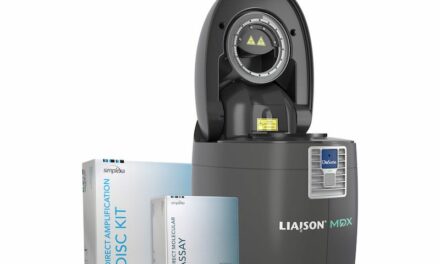Thermo Fisher Scientific, Waltham, Mass, and NanoPin Technologies, New Orleans, have formed a collaborative relationship to advance blood-based infectious disease detection technology through the development of highly sensitive liquid chromatography-mass spectrometry (LC-MS) workflows.
By detecting disease-related antigens directly from patient blood samples, NanoPin’s diagnostic platform using Thermo Fisher’s advanced LC-MS technology will create sensitive clinical assays for infectious disease. The assays will enable healthcare providers to reduce time to results, determine infection stage, and monitor patient response to prescribed treatment. The quantified information gleaned from the combined technology will support clinical decisionmaking and the provision of personalized care unique to the patient’s disease state.
“Time is critical when it comes to the diagnosis and treatment of patients suffering from infectious disease, and current methods do not facilitate prompt diagnosis and rapid evaluation of treatment response,” says Bradley Hart, senior director for clinical research, chromatography, and mass spectrometry at Thermo Fisher Scientific.
“The current diagnostic solutions available for the detection and monitoring of infectious disease are not sufficient because they limit patient outcomes and the global management of such ailments,” says Thomas Tombler, PhD, EMBA, chief executive officer of NanoPin Technologies. “Through our agreement with Thermo Fisher, our unique diagnostic platform has the potential to change how infectious diseases such as tuberculosis are detected, treated, and controlled, by solving the unmet needs of healthcare providers managing patient care throughout the world.”
For more information, visit Thermo Fisher Scientific and NanoPin.
Featured image: LC-iSPRM-MS platform for simultaneous detection and quantification of HIV and TB. Serum samples were trypsin digested, spiked with stable isotope-labeled internal standards, antibody-enriched for the two target peptides, and analyzed by LC-SPRM-MS. Multiplex quantification of target peptides are determined by MS intensity ratio of target and isotope labeled internal standard peptides.







